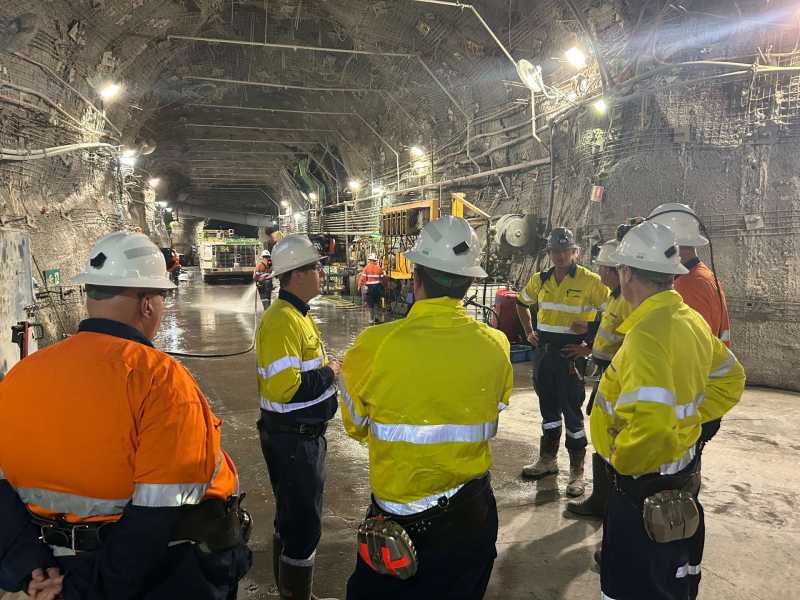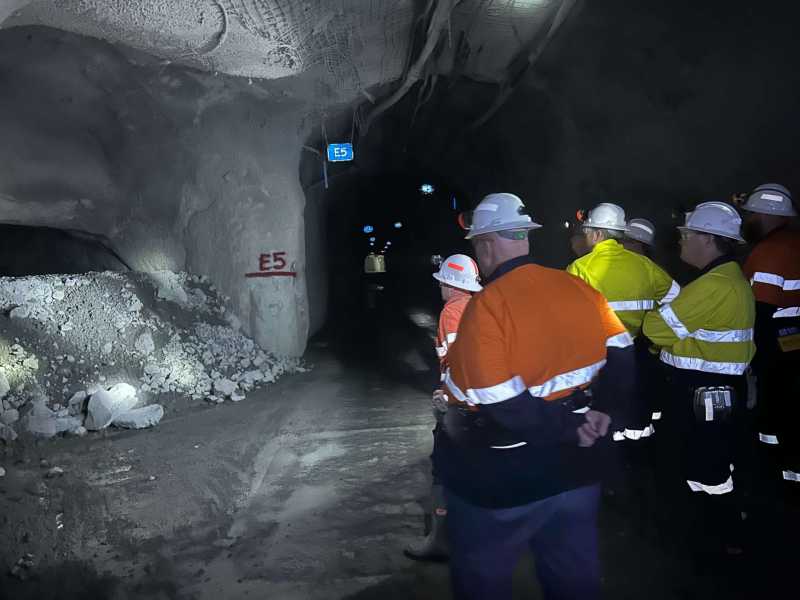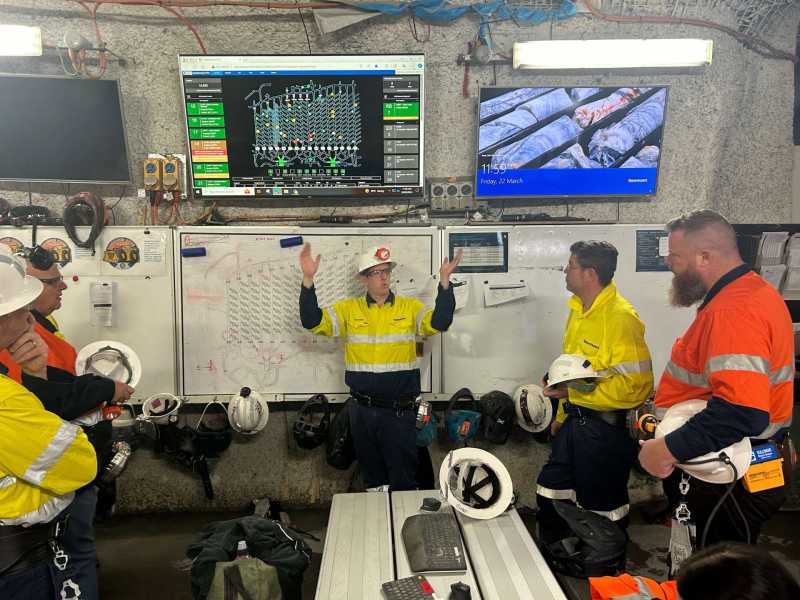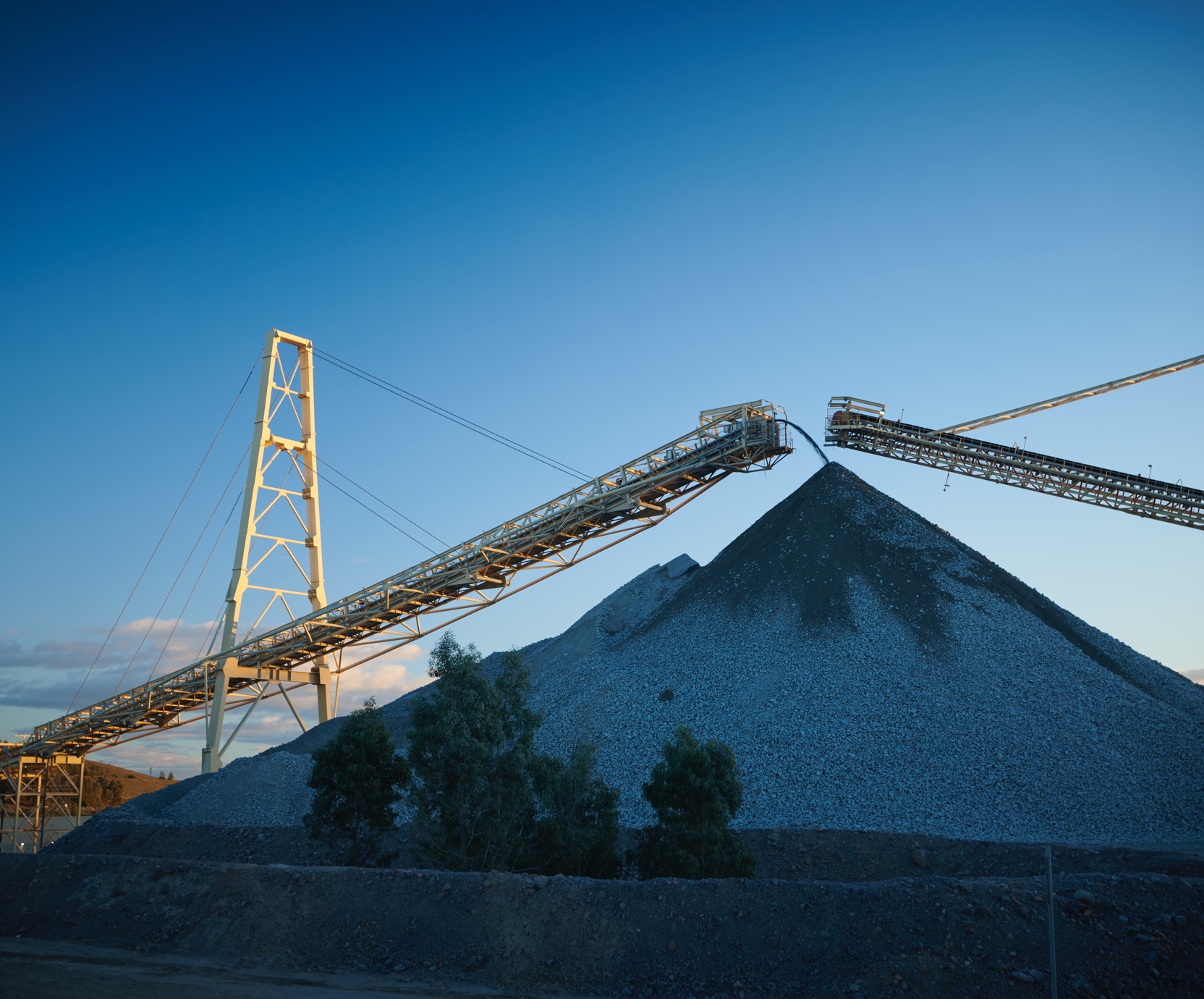Planning & Approvals
NSW planning & approvals overview
Under the NSW Environmental Planning & Assessment Act 1979, a development that is important to NSW for economic, environmental or social reasons can be classified a State Significant Development (SSD). An SSD must be approved by the NSW Minister for Planning or the Independent Planning Commission before it can proceed.
CCOP is a State Significant Development and must complete the assessment and approval application process required by the NSW Department of Planning, Housing and Infrastructure DPHI).
A Scoping Report was lodged with DPHI in May 2024 and they issued the Secretary’s Environmental Assessment Requirements (SEARs) in late June 2024. The SEARs defines the issues DPHI expects the EIS and technical assessments to cover. They are being prepared and we expect to submit them late in 2025.
Broadly, the EIS will describe the key features of the CCOP and cover topics including social impacts, economic impacts, visual impacts, air quality, noise, vibration, traffic, surface and groundwater, Aboriginal and historical heritage, soils and agriculture and biodiversity impacts and others.
The EIS will assess potential impacts and describe how they will be minimised as far practicable.
Cadia has commissioned Umwelt Environmental to assist with the preparation of the EIS.
If CCOP is approved, Cadia’s Environmental Protection Licence (EPL) will need to be varied and a new mining lease granted over the project area. CCOP also requires approval under the Commonwealth Environment Protection and Biodiversity Conservation Act 1999.
More information about the SSD assessment and approvals process is available at The SSD process | Planning Portal - Department of Planning and Environment
EIS Scoping
The preparation and submission of the Scoping Report to DPHI was the first phase of the assessment process. The Scoping Report identified issues and impacts likely to be relevant to the project and the community.
The CCOP Scoping Report was lodged with DPHI in May 2024 and is available here.
In late June 2024, DPHI issued the Secretary's Environmental Assessment Requirements (SEARs) for the CCOP. The SEARs defines the issues DPHI expects theEIS and technical assessments to cover. They are being prepared and we expect to submit them late in 2025. DPHI’s explanation of the SEARs process is available at Request SEARS | Planning Portal - Department of Planning and Environment
The full Scoping Report included a Social Impact Scoping Report (SISR), which was informed by
- 65 meetings with nearby landholders
- 130 meetings with local and state representatives, agencies, community and environmental groups
- 3 CCOP stakeholder and community workshops
- 16 Cadia district residents meetings
- 28 pop up stalls across Orange, Millthorpe, Blayney, Canowindra and Molong.
Those engagement and consultation activities are summarised in the Impact Assessment Update Newsletter (April 2024) A full Social Impact Assessment is being completed as part of the EIS.
EIS preparation
As part of the development approval application process, Cadia must prepare an EIS. The EIS will assess potential impacts and describe how they will be minimised as far practicable. It will also detail how the project design has been adapted to manage, mitigate impacts.
Broadly, the EIS will describe the key features of the CCOP and cover topics including social impacts, economic impacts, visual impacts, air quality, noise, vibration, traffic, surface and groundwater, Aboriginal and historical heritage, soils and agriculture and biodiversity impacts and others.
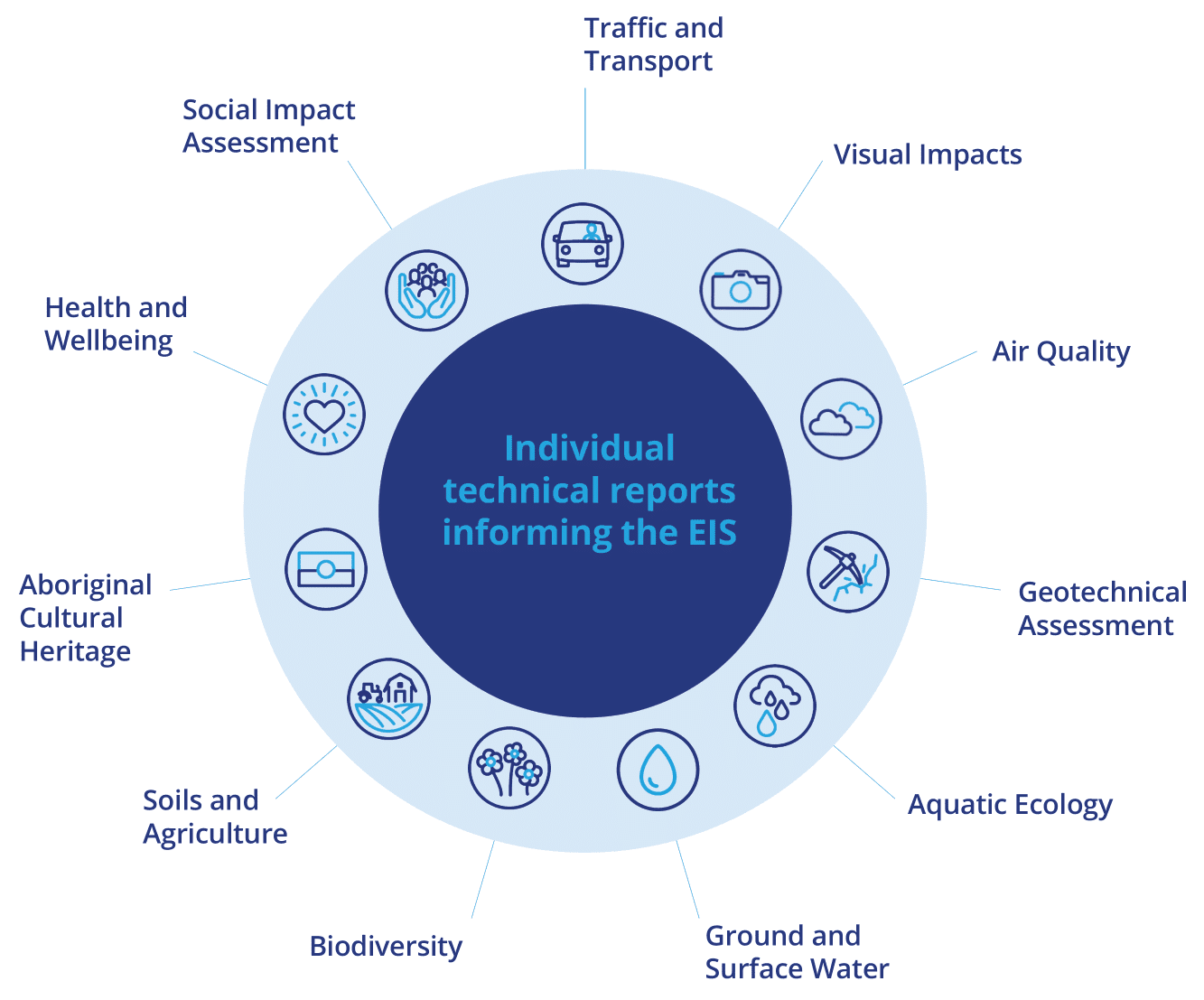
Cadia has commissioned Umwelt Environmental – and ten individual specialist consultancies – to assist with the preparation of the EIS. Before the EIS is submitted, a Registered Environmental Assessment Practitioner (REAP) is required to certify that the EIS is true and correct.
A series of fact sheets that summarise each EIS topic area is available at the Resources and FAQ webpage.
More information about preparing an EIS is available here: Prepare EIS | Planning Portal - Department of Planning and Environment.
EIS Assessment & Exhibition
After the CCOP EIS has been lodged with DPHI, government experts will begin assessing the different reports. At the same time, the EIS will be put on public exhibition for a minimum of 28 days. During the exhibition period, public submissions can be made through DPHI’s Major Projects Planning Portal. More information about the exhibition period is available here: Exhibit DA | Planning Portal - Department of Planning and Environment.
The exhibition and submissions process is managed by DPHI who will collate issues raised in submissions, return to CCOP for response, then publish the answers in a Submissions Report. More information is available here: Respond to Submissions | Planning Portal - Department of Planning and Environment.
EIS determination
When DPHI is satisfied that all conditions have been met, they will refer the project to the Minister for Planning for determination. The Minister will determine that the project may proceed as long as local Councils support the development application, less than 50 unique objections were lodged and the applicant has made no donations to political parties.
If a project fails one or more of these conditions it will be sent to the Independent Planning Commission for consent. More information about the IPC is available here: Determine DA | Planning Portal - Department of Planning and Environment and here: Our processes | Independent Planning Commission.



